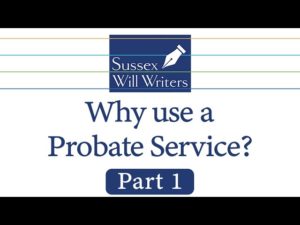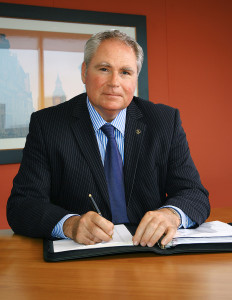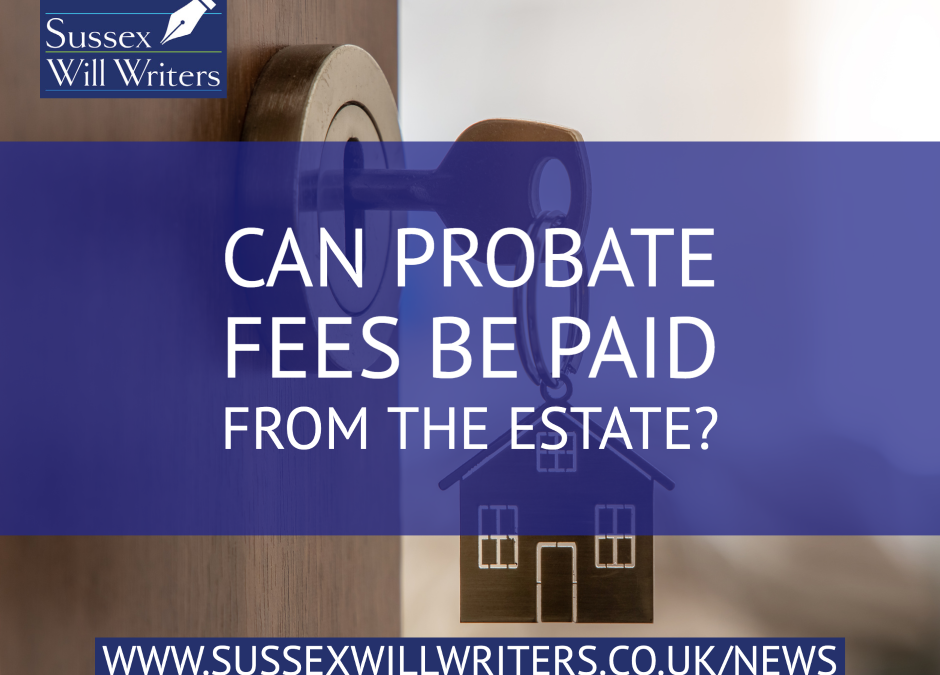
From: Kings Court Trust
When dealing with the death of a loved one, many Executors find themselves worrying about the costs of administering the estate and how fees can be paid. Acting as an Executor or Administrator is not a paid role, and it’s common to feel concerned that it may leave you out of pocket. In this blog, we’ll cover what probate is and whether probate (and other fees) can be paid out of the estate.
What is probate?
Probate, known as the Grant of Probate or Grant of Representation in England and Wales or Confirmation in Scotland, is obtained by the Executor to give them the legal right to administer the deceased’s estate. When someone dies without a Will, known as dying intestate, this role is referred to as the Administrator, and probate is called Letters of Administration.
Whether the individual died with or without a Will, the Executor or Administrator (Personal Representative) will need to work out whether probate is required. Generally, probate is required if the deceased solely owned property and/or has a certain amount of money in the bank. This amount is individual to each UK financial institution.
What is the difference between probate and estate administration?
Although probate is not required for every estate, the Executor or Administrator must always administer the estate. This process is referred to as estate administration; probate is just one part of the wider estate administration process. When administering an estate, the Personal Representative’s tasks may include notifying utility companies, preparing tax forms, selling assets and property, producing estate accounts, and more. Click here to download our complete guide to estate administration.
How much does probate cost?
The fee for obtaining a Grant of Probate is £273 for all applications except those where the estate is £5,000 or less – in this case, there is no fee to pay. Many Personal Representatives choose to instruct someone to apply on their behalf to take away the stress of the complicated paperwork; this will cost an additional fee. Whilst some providers will operate under a fixed fee, others might work on time and expense prices, and others may charge a percentage of the estate. There are different levels of professional services available to you, from simply obtaining the Grant of Probate to support with the full estate administration process.
Can probate fees be paid from the estate?
So, how are probate fees paid? The probate application fee can be paid online or via cheque (if applying by post) and then reimbursed from the estate later. Similarly, if a professional is undertaking the work on your behalf, the Executor or Administrator can claim back the cost from the estate.
Alternatively, an Executor bank account can be set up using the estate’s funds so that they do not have to pay any upfront fees themselves. However, this can depend on the amount of money in the estate and which financial institution the deceased banked with, and you may need the Grant of Probate before paying out any estate expenses from the deceased’s funds.
Can money be paid out of the estate before probate is granted?
Although there are some exceptions, the estate should usually never be paid out until the Executor has a Grant of Probate. However, if probate is not required, paying beneficiaries should still be one of the last tasks the Personal Representative undertakes. This is to ensure all debts and liabilities are paid from the estate first. It is usually possible to pay the funeral bill from the estate before probate is granted.
Additionally, it is advisable that the Executor places a statutory advertisement in a local paper so that any unknown creditors or beneficiaries have the chance to come forward. The recommended period for this advertisement is a minimum of two months, after which the estate can be distributed as planned. This has the added benefit of providing protection against disputes from unknown beneficiaries.
What other expenses can be deducted from the estate?
When acting as Executor or Administrator, you must keep a record of every expense you’ve had to pay so that estate accounts can be prepared, and reasonable expenses can be claimed back from the estate. Reasonable expenses are those paid by the Executor during estate administration which are unavoidable and can be confirmed as necessary to the estate/its beneficiaries. Other than probate fees, these may include:
Valuation services
The cost of clearing the property
Legal fees for property sale
Travel expenses
Inheritance Tax fees
Other legal fees
Claiming expenses which are not reasonable could lead to delays in the estate administration process, as the beneficiaries are entitled to request records of everything that the Personal Representative is spending so that they receive their maximum inheritance.
When can the Executor pay beneficiaries?
Once all debts have been settled and assets accounted for, the Executor can then begin the process of paying out the estate to the beneficiaries. It is at this stage that the Personal Representative(s) can also be reimbursed for any expenses.
The Executor or Administrator should also produce estate accounts for the beneficiaries so that they can review the details of the estate’s make-up and how the share due to them has been calculated. This should include the estate’s complete assets, liabilities, fees, and expenses during administration. Essentially, estate accounts show all money coming in and out of the estate.
What help is available to Executors?
There are certain estate funding products that are available to help Executors cover the costs involved with probate and estate administration. Additionally, there are solutions available to keep the beneficiaries happy and avoid disputes. For example, Inheritance Tax loans, inheritance advances, and funding for estate expenses.
Instructing a professional that can provide a fixed, upfront cost not only assures Personal Representatives that they will not be charged any unexpected fees, but it also means that they can hand over the difficult work to an expert.
Sussex Will Writers help to inform our clients and readers of the latest industry news and developments. If you have any questions about any of the information on our blog or website, Click to Call us on 01903 533681
or get in touch by emailing: info@sussexwillwriters.co.uk
 Sussex Will Writers
Sussex Will Writers
T: 01903 533681
M: 07734 744886
E: info@sussexwillwriters.co.uk
For more in-depth discussion about Probate and why you should consider using a Probate Service, watch our Video Series

Could you do with some FREE, sound advice on:
- Writing a Will – What do I need and how much does it cost?
- Creating Lasting Powers of Attorney – If I was incapacitated who can act on my behalf?
- Property Protection Trusts – Can these really save Care Home Fees?
- Pre-Paid Funeral Plans – With so many to choose from how do I decide which plan is best?

There is so much confusion on these vital areas of estate planning, that sometimes just a chat with an expert in the field can clear up misunderstanding and set out the way ahead, without all the legal jargon.
Or complete the form below
Steve Worsfold
Affiliate Member of the Society of Will Writers
Advising on Wills/Trusts/Probate/Powers of Attorney

Mobile: 07734 744886
Office: 01903 533681
Email: steve@sussexwillwriters.co.uk
Website: www.sussexwillwriters.co.uk
Protecting What’s Precious to You,
Now and in the Future
Sussex Will Writers is proud to support Dementia Friends,
an initiative of The Alzheimers Society
Our business is certified ‘Safe to do business with’ and ‘Code compliant’
by the UK’s largest regulatory body for Will Writers, The Society of Will Writers.
Steve Worsfold has been an Affiliate Member of the Society for 15 years.





